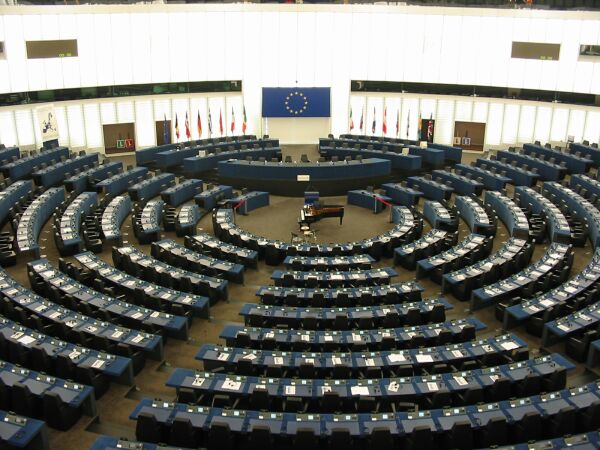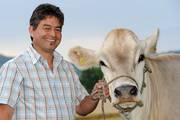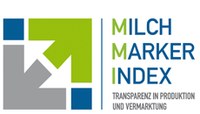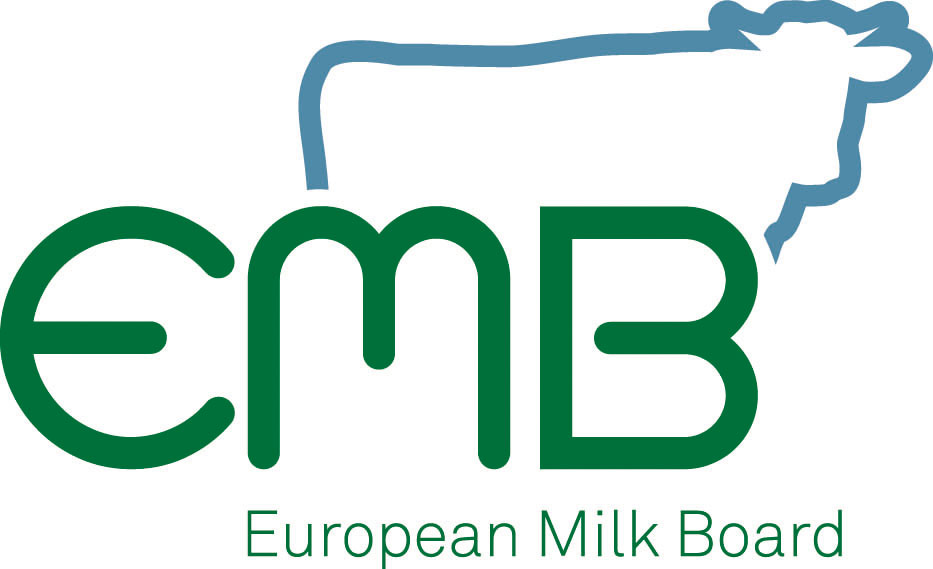EMB Newsletter June 2014
Newsletter as PDF
Contact
EMB – European Milk Board asbl
Rue du Commerce 124
B-1000 Brussels
Phone: +32 – 2808 – 1935
Fax: +32 – 2808 – 8265
Newsletter as PDF
Contact
EMB - European Milk Board asbl
Rue de la Loi 155
B-1040 Bruxelles
Phone: +32 - 2808 - 1935
Fax: +32 - 2808 - 8265
Dear Dairy Farmers and Interested Parties,
The election of the Members of the European Parliament is over and there will be a change in approach, both for the European Parliament and for EMB representatives. You can read an article on the election results in this newsletter.
An issue that will have to be focused on a lot more is the Transatlantic Trade and Investment Partnership between the EU and the US, known in short as the TTIP free trade agreement. Up until now negotiations have been held behind closed doors, and although the fifth round of negotiations is already over, neither the people nor the parliamentarians know much of its content besides some ‘leaked’ documents.
Hormones for meat and milk production, the use of animal medication forbidden in the EU, the almost complete lack of animal welfare standards – these are all common practice in the US. And what about the absence of the precautionary principle in the US, by which we protect our consumers in the EU? EU policymakers try to have us believe they will make sure our food stays hormone-free, safe and up to EU standards. Today already dairy products from the US are crossing our borders, produced with the help of milk-stimulating hormones. We will sink to the lowest standards or will have an enormous distortion of competition.
The loss of border protection will disrupt our rural areas because price pressure will increase concentration in the dairy market and will cause family farms to disappear.
Farmers are no supermen, they cannot defy gravity, nor can they produce at higher costs and still hold their position in the market. That is how the market works: a simple survival of the fittest. And, in the eyes of our policymakers, retailers and trade companies, being competitive means nothing more than being the cheapest.
An EU-US trade deal means the loss of our democratic right to decide how we produce our food, who will produce it and where, so in fact corporate domination over food democracy. That is something we, as citizens, farmers and members of the EMB cannot accept. To the TTIP we say: No, thank you.
Sieta van Keimpema (Vice President of the EMB)
European elections in turbulent times
Against the backcloth of economic crises and widespread disenchantment with the project for a unified Europe, from 22 to 25 May the citizens of the EU Member States voted for their candidates vying for the 751 seats in the European Parliament in Strasburg. The low turn-out all across Europe of only about 43 per cent, and the electoral success of numerous parties which essentially oppose Europe, once again clearly demonstrated that at present the EU holds out no concrete solutions for the tough situation many people live in, and that the concept of Europe is not winning the hearts and minds of people in Europe.
In the end there were no major surprises in the elections, the outcome of which was as had been predicted by the media.
Farmers are the losers in the abolition of quotas
The following interview with Martin Haab, President of the Swiss EMB member organisation BIG-M, was published on the www.schweizerbauer.ch website on 6 May. Five years after the end of the milk quotas in Switzerland, Martin Haab draws a negative conclusion and predicts a similarly unsatisfactory development for the abolition of quotas in the EU next year. The EMB study referred to in the article will be officially published shortly.
The Brussels authorities want to silence opposition to the “Transatlantic Agreement” (TTIP)
The following press release was published on 16 May by the Alliance D19-20 – in which the Belgian EMB member organisations MIG and FMB are actively involved – subsequent to a demonstration on the occasion of this year’s “European Business Summit” in Brussels.
On Thursday morning, 15 May, more than 1,000 people took to the streets of Brussels for a peaceful protest against austerity and the planned transatlantic agreement discussed behind closed doors at the European Business Summit.
Current figures: farm-gate price still cannot cover costs of production
Taking the EMB’s cost study as its basis, the MEG Milch Board developed the Milk Marker Index (MMI), which documents the ongoing course of production costs (base year 2010 = 100). The MMI for January 2014 is 109 points. It is published quarterly with a price-cost ratio, which shows the relation between the officially recorded farm-gate prices and the costs of milk production.
In Germany the milk price in January 2014 of 41.46 cents a kilo of milk was about 4 cents below the production costs of 45.16 cents a kilo, according to the latest cost study carried out by the German office for agriculture and agricultural sociology BAL.
Campaigns of action for World Milk Day
World Milk Day is held every year on 1 June to publicise internationally the consumption of milk. It was initiated by the Food and Agriculture Organisation (FAO) of the United Nations and the International Dairy Federation (IDF) and is organised the world over. Campaigns and press events relating to the subject of milk are organised in numerous member countries of the EMB, primarily addressing consumers and publicising milk as a food. This year in various countries, e.g. Austria, the focus is also on the end of the milk quota system in 2015.
EMB Calendar
These are some of the EMB Board’s key dates in June 2014:
03.06: TTIP discussion with civil society at the Directorate-General for Trade
03.06: EMB Milk pooling meeting in Brussels
18.06: Meeting with the Directorate-General for Agriculture on the calculation of costs (EMB full-cost study)
23.06: Meeting with the French Ministry of Agriculture in Paris
Full Texts
European elections in turbulent times
 |
Against the backcloth of economic crises and widespread disenchantment with the project for a unified Europe, from 22 to 25 May the citizens of the EU Member States voted for their candidates vying for the 751 seats in the European Parliament in Strasburg. The low turn-out all across Europe of only about 43 per cent, and the electoral success of numerous parties which essentially oppose Europe, once again clearly demonstrated that at present the EU holds out no concrete solutions for the tough situation many people live in, and that the concept of Europe is not winning the hearts and minds of people in Europe.
In the end there were no major surprises in the elections, the outcome of which was as had been predicted by the media. Despite significant losses the Conservative European People’s Party (EPP) emerged from the elections as the strongest political group with 213 seats, or 28 per cent. They were followed by the Socialists and Democrats (S&D) with 190 seats, the Liberal and Democrats (ALDE) with 64 seats, and the Greens (Greens/EFA) with 52 seats.
What is new, however, is that never before have so many Eurosceptic parties/parties totally opposed to the EU made the breakthrough to the European Parliament. Regardless of whether the French Front National, the German AFD, the British UKIP or the Greek Syriza party do in fact defend extremely different positions beyond their rejection of the EU, this development will represent a challenge for the new European Parliament’s work as a whole and by extension for the EMB’s political work. If we include the existing Eurosceptic “Europe of Freedom and Democracy” (EFD) party, there could be up to 143 out of the 751 seats in the new European Parliament whose occupants follow a different path of European integration. How the EMB will work together with these MEPs must be decided on a case-by-case basis. There is definitely potential for these Eurosceptics to include MEPs and parties receptive to stronger regulation of the EU milk market.
This time the European elections were particularly exciting for the longstanding member of the EMB Board from Belgium, Erwin Schöpges, who as an independent candidate for the Belgian Greens ran to represent his home region for the European Parliament. Although unfortunately he was beaten in the end by his challenger from the Belgian Conservatives, no doubt this outcome will be regarded from an EMB viewpoint with mixed feelings albeit tinged with relief, because as a result the organisation retains an extremely committed, experienced fellow campaigner for the concerns of European dairy farmers at the heart of political Europe.
It is therefore all the more pleasing that another EMB stalwart made it into the European Parliament. The National Chair of the German EMB member organisation AbL and active dairy farmer Maria Heubuch will enter the European Parliament in Strasburg on the German Greens’ list. The members of the EMB naturally extend their most sincere congratulations to her.
Despite the established parties’ losses, many MEPs on the EP Agriculture Committee with whom the EMB has worked together in a spirit of trust over the years were re-elected. The best-known of them are perhaps the Greens José Bové from France and Martin Häusling from Germany, as well as the French Conservative Michel Dantin, who came up with the original proposal for a voluntary delivery suspension. This also gives hope for a continuation in the future of the successful political work with the European Parliament. The EMB will carry out a detailed analysis of the MEPs elected and the chances of beneficial co-operation in July, when the composition of the new Agriculture Committee will have been determined.
What is more, there is an exciting prospect of the European People’s Party (EPP) candidate for the office of the President of the European Commission, the former Prime Minister of Luxembourg Jean-Claude Juncker, really being elected to head up the European Commission – as previously announced – after the electoral victory of the European Conservatives. He has already received the support of the majority of the Members of the European Parliament. Regardless of personal preferences for a particular candidate, at all events it would also be a bonus for the culture of democracy in the EU.
Christian Schnier (EMB)





